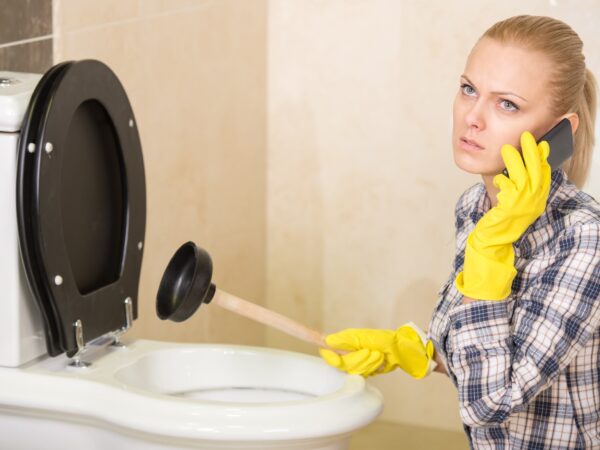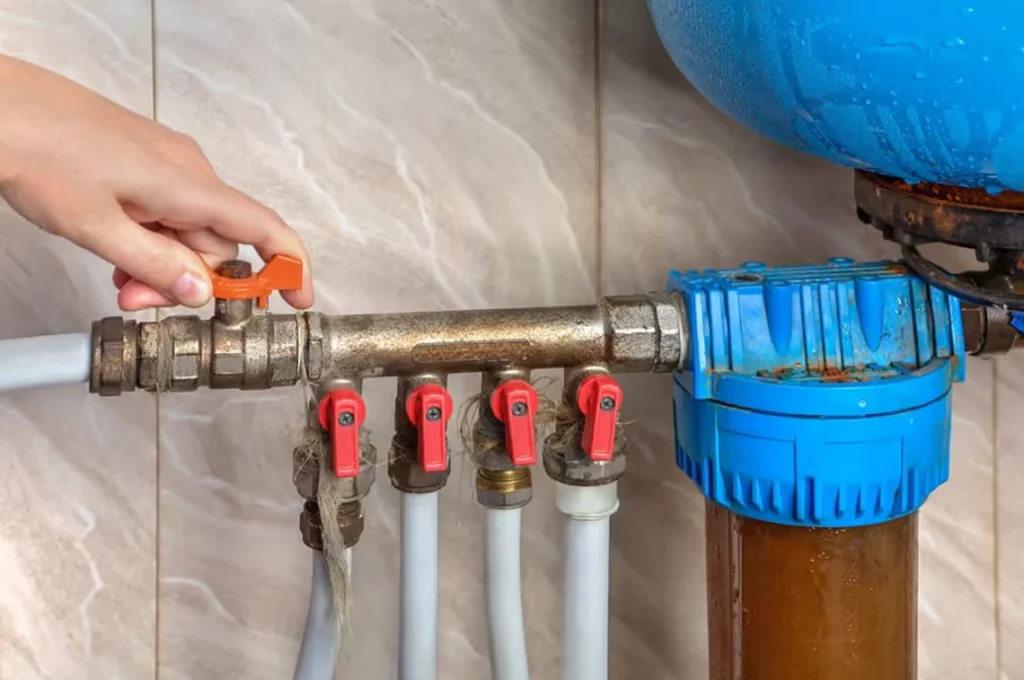How to Handle Emergency Plumbing Issues Before Expert Help Arrives
How to Handle Emergency Plumbing Issues Before Expert Help Arrives
Blog Article
Every person has got their own unique conception involving Plumbing Emergencies: Tips on What To Do Before.

Pipes emergencies can strike at any moment, creating tension and possible damages to your home. Whether it's a burst pipe, a stopped up drainpipe, or a dripping tap, recognizing how to manage the situation up until an expert plumbing professional arrives can conserve you from more problems. This write-up offers crucial emergency plumbing pointers to assist you minimize damage and regain control during a pipes situation.
Turn Off the Supply Of Water
The primary step in any kind of pipes emergency is to turn off the water system. For local issues, such as a dripping faucet or toilet, shut off the shutoff near the component. In the case of a major leakage or ruptured pipeline, locate your home's primary water shut-off valve and transform it off immediately. Knowing the location of these valves ahead of time can conserve valuable time during an emergency.
Address Small Leaks with Temporary Fixes
Small leaks can rapidly end up being substantial troubles if left unchecked. Utilize these short-term repairs up until professional assistance gets here:
While these repairs aren't long-term, they can assist lessen water loss and damages.
Unclog Drains Pipes Securely
A stopped up drainpipe can be a discouraging and untidy issue. Here's how to tackle it:
If these techniques do not work, prevent using extreme pressure, as it might worsen the obstruction.
Take Care Of Overflowing Toilets
An overruning bathroom can create instant disorder. Right here's what you must do:
Turn off Your Hot Water Heater
In certain emergencies, such as a burst pipe, it's smart to shut down your water heater. This protects against overheating or damages to the system when water quits flowing. Switch off the power supply to the hot water heater (electric or gas) and let it cool to stay clear of possible hazards.
Briefly Quit a Ruptured Pipeline
A ruptured pipeline can bring about substantial water damages in mins. To mitigate the concern:
Call an expert plumbing right away to attend to the trouble completely.
Manage Frozen Water Lines Very Carefully
In colder climates, frozen pipelines are a typical emergency situation. If you think a frozen pipe:
Protect against More Damages
Taking quick activity to lessen damage can save you money and time in the future. Here's how:
. Have an Emergency Situation Pipes Kit
Prepare a fundamental pipes emergency package to handle minor concerns effectively. Your set should include:
Having these tools available can make a substantial difference in your ability to handle emergencies.
Know When to Call an Expert.
While quick fixes can assist momentarily, particular pipes concerns call for instant expert interest. Call a plumbing professional if:.
Without delay calling an expert makes certain the concern is settled appropriately and protects against additional issues.
Final thought.
Plumbing emergencies can be frustrating, yet with the ideal understanding and tools, you can manage the situation effectively till assistance shows up. By switching off the water, resolving little leaks, and making use of momentary repairs, you can minimize damages and keep your home safe. Bear in mind, these suggestions are temporary remedies; always get in touch with a certified plumbing professional to deal with the root cause of the issue. Prep work and fast thinking are your ideal allies in any type of pipes emergency.
8 Helpful Tips for Managing Plumbing Emergencies at Home
If your plumbing system hasn’t failed once, wait for it because almost everyone has a story to tell. Sometimes, it could be simple emergencies such as a leaking pipe, a blocked cistern, or even a big burst pipe. In situations like this, you need to have some handy tips to save you some money and from possible damages.
Take care of minor issues early.
Sometimes, you could have avoided an emergency by taking proactive measures while it was still early. Some major plumbing emergencies can be a result of an ignored minor issue. We recommend that you have items like plumbing tapes and other related items. A plumbing tape can allow you to manage minor leaks before the plumber arrives.
Cut off the water supply.
This tip is essential in almost any type of leakage problem. For problems like minor leakages in the toilet or kitchen, turn off the supply that takes water to the affected pipes. If the leakage is a major pipe, you must shut off the supply valve to the entire building. This will help you avoid flooding your home and neighbors if you share a flat.
Know your plumbing system
Folks typically move into a new apartment without understanding the water supply around the building. This can prove disastrous if a water emergency arises and the plumber is far away. The previous tip will prove useless if you don’t practice this one. More importantly, know where your water shut-off valve is located – you’ll need that knowledge to prevent potential home floods.
Have some common handy tools
There are lots of plumbing emergencies that you can handle without hiring a plumber. That’s why you must keep some tools available always. Some tools that you can use to fix simple plumbing emergencies easily include plumbing tapes, screwdrivers, thread seal tapes, plungers, pliers, tape measures, and rubber gloves.
Insulate your pipes from cold
You’ll save yourself from many plumbing expenses if you protect your water pipes from the cold. This is because of the harmful effects that cold weather can have on your pipes. During winter, your pipes can burst from being overly expected to freezing temperatures. So, make sure insulators are there to keep the pipes working correctly.
Avoid practices that will clog your toilet.
Many people indulge in practices that can damage the plumbing system of the entire building. One of these is when they use their toilet to dispose-off garbage. They flush all kinds of things, such as paper towels, bandages, hairs, female sanitary products, etc., down the toilet. This will block your toilet in the long run, incurring unnecessary expenditures. Dump such waste in the trash instead.
Check your dials regularly.
Sometimes, there could be leakages in your home without noticing them in time. So, constantly monitor your water meter dial. If the dial is reading when there is nobody using water, this is an indicator that there is leaking. Check for leaks immediately. Call a plumber as soon as possible if you can’t find any.
https://www.constructionplacements.com/8-helpful-tips-for-managing-plumbing-emergencies-at-home/

As an avid person who reads about Expert Tips for Managing a Plumbing Emergency Until Help Arrives, I thought sharing that piece of content was really helpful. Feel free to set aside a second to promote this page if you enjoyed it. Many thanks for your time. Please pay a visit to our blog back soon.
Call Today Report this page